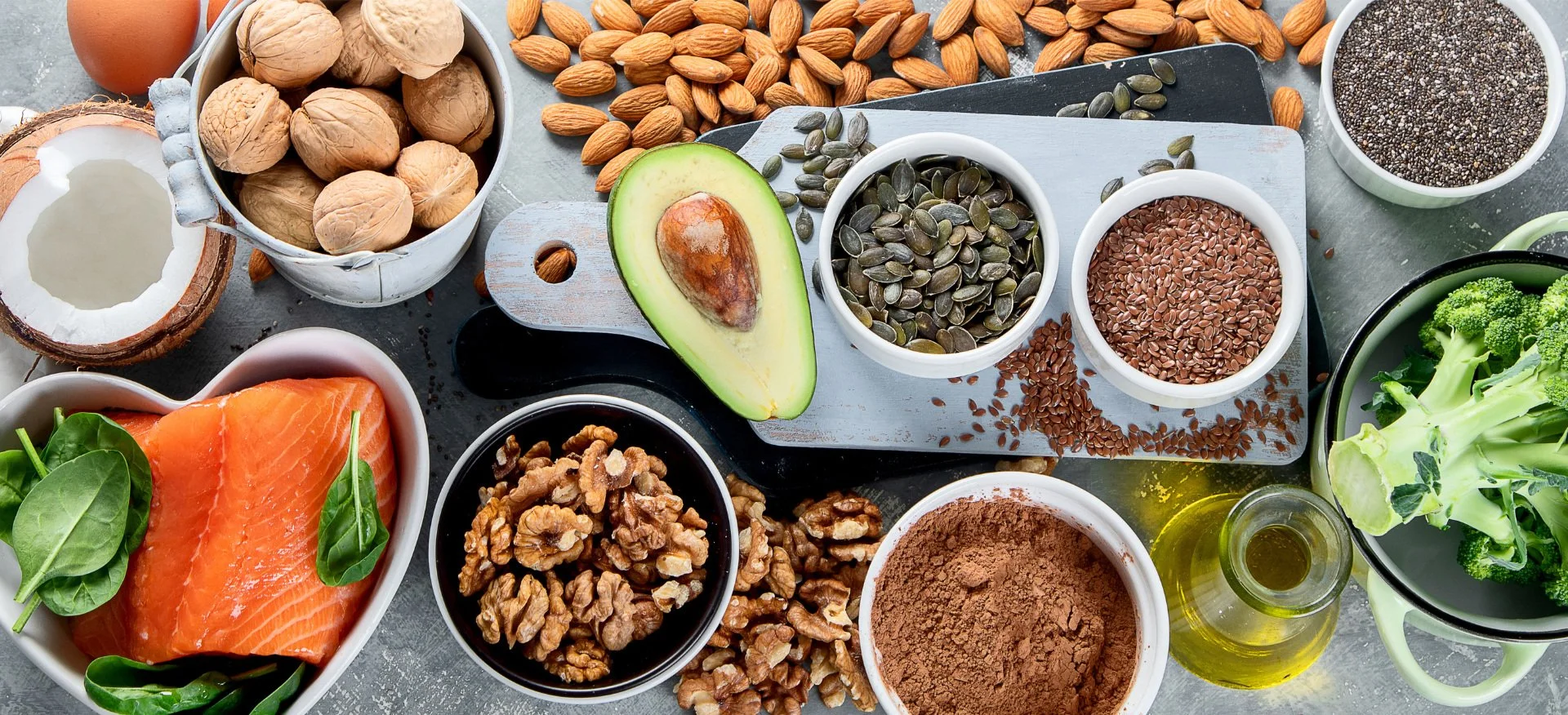Is Saturated Fat or Sugar Worse for Your Health?
Excessive consumption of saturated fats and added sugars poses significant health risks, including heart disease, obesity, and metabolic disorders. This article delves into the distinct ways each affects your health, from raising LDL cholesterol to contributing to weight gain and insulin resistance. By comparing their impacts on cardiovascular health and body weight, we aim to provide a clearer understanding of their effects, offer actionable dietary advice, and guide you toward making informed, balanced food choices to promote overall well-being.
Key Takeaways
Saturated fats can raise LDL cholesterol levels, increasing the risk of heart disease, but some dairy sources may be less harmful; dietary guidelines recommend limiting intake to 20-30 grams per day.
Added sugars contribute to obesity and various health problems, with high consumption particularly linked to increased cardiovascular disease risk; reducing intake is crucial for managing weight and overall health.
A balanced diet that limits both saturated fats and added sugars, while incorporating healthy fats and nutrient-rich foods, is essential for improving heart health and preventing chronic diseases.
Understanding Saturated Fats
Fat is a vital macronutrient, but not all fats are created equal. Saturated fats made up of saturated fatty acid, found in foods like butter, cheese, and other processed foods, meats and, and tropical oils are solid at room temperature due to their chemical structure. Highlighting saturated fats is essential because understanding their sources and effects can help people make informed dietary choices, reducing the risk of chronic health issues [1].
Dietary sources rich in saturated fatty acids include items like red meats with fatty meat or high-fat content, dairy foods with full fat, and oils derived from coconut and palm oils. These types of fats are known to elevate levels of low-density lipoprotein (LDL), commonly referred to as the “bad” cholesterol, which can subsequently increase overall serum cholesterol levels. Consequently, organizations such as the American Heart Association categorize saturated fats among those considered less healthy and suggest limiting their consumption within one’s diet [2].
Nevertheless, not all food products containing saturated fats carry an identical threat to health. Certain dairy product sources containing these fats may not contribute to a heightened risk for coronary heart disease. Some might even offer health benefits.
Recommendations regarding dietary intake put forth by authorities like those in the UK advise curtailing consumption of saturated fat — suggesting no more than 20 grams daily for women and 30 grams daily for men. Such measures aim at diminishing the risk associated with heart disease while promoting better general health outcomes [3].
The Impact of Too Much Saturated Fat
Eating excessive amounts of saturated fat can heighten the risk of cardiovascular disease and stroke due to its role in boosting LDL cholesterol levels within our blood. To lessen these dangers, the American Heart Association recommends that no more than 6% of your total daily calories should come from saturated fat. Both trans fats and saturated fats are typically present in baked goods, fried foods, processed meats, and many consumer packaged goods. They increase bad LDL cholesterol while reducing high-density lipoprotein (HDL), which is beneficial for heart health [4].
Trans fats stand out as particularly harmful because they not only are associated with increased levels of unhealthy LDL cholesterol but also reduce protective HDL cholesterol, making them even more detrimental to heart health than saturated fats. It’s advised that individuals aiming to decrease their LDL levels completely remove trans fats from their diets for optimal cardiac wellness [5].
The benefits extend when substituting unsaturated fats in place of those rich in saturation. Research indicates that replacing saturated fat in them with polyunsaturated fatty acids can significantly curtail incidents related to cardiovascular diseases. This emphasizes the importance of not solely focusing on diminishing overall fat consumption but also conscientiously choosing healthier types of dietary fat for enhanced well-being.
Beneficial Fats: Unsaturated and Polyunsaturated Fats
Unsaturated fats are often considered favorable for heart health, setting them apart from saturated fats. Evidence suggests that replacing saturated fats with polyunsaturated fats may be heart healthy and lead to a decrease in incidents related to cardiovascular disease. Polyunsaturated fats have the potential to reduce levels of both LDL and HDL cholesterol, fostering enhanced cardiac health [6].
Salmon, mackerel, and sardines are excellent sources of polyunsaturated fats due to their richness in omega-3 fatty acids. Monounsaturated fats found in items such as avocados, nuts, olive oil, and canola oil are beneficial for one’s health. These types of fat not only aid in optimizing blood cholesterol and levels but also deliver vital nutrients necessary for overall well-being [7].
Incorporating these nutritious unsaturated fats into your diet serves as an effective strategy for supplanting saturated fats and ameliorating heart function. Opting for olive or canola oils over traditional spreads like butter enhances the nutrition profile of your dishes significantly. By adopting these minor dietary modifications, you pave the way towards sustaining a diet conducive to heart healthy and long-term cardiovascular wellness.
Sugar: The Sweet Culprit
Sugars and syrups, such as high fructose corn syrup, that are incorporated during the processing or preparation of foods, provide no nutritional value and contribute to a higher calorie count. Added sugars are prevalent in a wide array of products including sweets like candy, baked goods such as cookies, desserts like ice cream, various breads and cereals, as well processed foods such as seemingly innocent items like tomato sauces [8].
The primary concern with these added sugars lies in their effect on one’s total caloric intake. Foods and drinks containing high levels of added sugar typically offer little nutritional substance while being rich in calories which can lead to overconsumption of calories and subsequent weight gain [9]. By remaining aware of sugar consumption and opting for more nutritious alternatives where possible, individuals can address these health concerns and lose weight more effectively.
Health Risks of High Sugar Intake
Numerous health hazards are connected to a high intake of sugar. Consuming added sugars, such as high fructose corn syrup, provides no essential nutrients and can result in significant medical conditions like obesity and heart disease. High consumption of dietary sugar is typically more detrimental than advantageous for one’s health, notably in the context of cardiometabolic diseases [10].
Compared with glucose, fructose may provoke greater metabolic disruptions, including insulin resistance — an important precursor to type 2 diabetes. To this concern, elevated levels of sugar intake have been linked with mental decline and could heighten cancer risks for certain types.
Sugar-laden drinks play a substantial role in body weight increase and the surge in obesity rates. Indeed, there exists a stark parallel between rising trends in both sugar consumption and rates of obesity. Reducing the amount of consumed sugar has correlated with slower growths in total fat intake and prevalence rates for obesity, thereby implying it might be effective as partaking in moderate body weight management measures. It is imperative to limit added sugar ingestion that preserves good health while removing persistent illnesses [11].
Comparing the Effects on Body Weight
Both diets rich in fat and those with high sugar content can negatively impact one’s body weight. Yet, studies have shown that a decrease in the consumption of dietary sugars can result in an average weight reduction of about 0.80 kilograms [12]. High fructose corn syrup is notably involved in escalating obesity rates due to its prevalence in sweetened drinks and processed food items [13].
An odds ratio of 1.55 for increased overweight or obesity risk was associated with populations consuming the most sugar-sweetened beverages, pointing out a clear link between elevated sugary drink intake and higher instances of weight gain. Conversely, cutting back on sugars—particularly from these beverages—is recognized as an effective method for controlling one’s weight [14].
In summary, although excessive intake of either fat or sugar may lead an increased likelihood of weight gain, evidence leans toward regulating sugar consumption as more impactful for reducing excess bodyweight effectively and sustaining a balanced mass over time. Adhering to a diet that minimizes added sugars alongside unhealthy fats is essential not only for losing but also for preserving healthy bodily proportions.
Cardiovascular Disease Risk Factors
The link between consuming saturated fats and the risk of cardiovascular disease (CVD) is complex and sometimes inconsistent. Despite evidence that a diet with excessive amounts of saturated fat can lead to obesity and elevated blood pressure—two major contributors to coronary heart disease—not all studies have shown a significant increase or association in risk. Such inconsistencies underscore the importance of examining not just individual dietary components but also the overall dietary pattern [15].
Substituting refined carbohydrates, particularly added sugars, for saturated fat does little to enhance cardiac health. In fact, it may actually raise one’s susceptibility to coronary heart disease. Diets abundant in sugar can negatively impact blood pressure levels, heightening hypertension risks. There’s an established association between heavy sugar intake and increased triglyceride concentrations—a notable factor implicated in heightened heart and coronary artery disease at risk [16].
Research has revealed that eating diets laden with additional sugar tends to coincide with increases in markers associated with metabolic syndrome—an ominous sign pointing toward amplified cardiovascular illness potentiality. While it’s recognized that foods rich in saturated fats could elevate total serum cholesterol figures, their actual effect hinges more heavily on both LDL particle count as well as size dimensions than previously believed. When aiming at reducing CVD dangers effectively, attention should be paid not solely on diminishing intake of saturates, but equally so on refining total dietary quality for optimal heart wellness outcomes [17].
Dietary Guidelines and Recommendations
The current dietary guidelines advise keeping the intake of saturated fats and added sugars below 10% of your total daily calorie consumption. The American Heart Association specifically endorses a restriction on added sugar to enhance health outcomes and to prevent obesity, suggesting that individuals should ensure their intake of added sugars does not exceed 10% of their daily calories [18].
Importantly, most caloric needs should be met with foods rich in nutrients, leaving minimal room for additional sugars and saturated fats. This method highlights the significance of maintaining healthy eating patterns over time instead of focusing narrowly on specific food items [19].
Fulfilling nutritional requirements primarily through whole foods and drinks facilitates healthier dietary practices. Carefully examining food labels to understand ingredient content aids individuals in making informed choices regarding their diet. Adhering to these suggestions contributes to establishing a balanced diet conducive to sustaining long-term well-being [20].
Making Healthier Choices
Adopting a diet that focuses on minimizing the intake of saturated fat and added sugar is crucial for better health. To cut down on saturated fat, it’s advisable to choose foods abundant in polyunsaturated and monounsaturated fats found in vegetable oils and nuts. Opt for using unsaturated-fat-rich oils like olive or canola instead of solid fats when cooking to boost your dietary profile.
Sugary beverages are a prominent contributor to our consumption diet high amount of added sugars. Thus, selecting sugar-free alternatives such as water is beneficial. A greater emphasis on consuming vegetables, whole grains, and nutritious proteins can lead to improved food choices that foster weight loss and lower the likelihood of chronic illness while promoting a balanced diet.
By vigilantly reading nutrition labels on packaged foods, one can make more informed choices conducive to maintaining health. Emphasizing a diet rich in vegetables, whole grains, and lean proteins is key for heart well-being and overall wellness maintenance. Through these modest yet impactful modifications in eating habits, individuals may experience enhanced health over time.
Summary
To summarize, the consumption of both saturated fat and added sugars carries considerable health concerns. There is an increasing amount of evidence suggesting that excessive intake of both fats and sugars may lead to more severe health consequences. Saturated fats are known to elevate LDL cholesterol levels and play a role in the onset of heart disease. Added sugars, on the other hand, are associated with obesity, diabetes, and various metabolic issues. As such, curtailing one’s intake of both saturated fats and added sugars is critical for maintaining optimal health.
By making informed choices about your diet—selecting healthy fats and reducing your intake of added sugars—you can significantly improve your cardiovascular health and overall physical condition. Adherence to established dietary guidelines aimed at achieving a nutrient-dense balanced diet is fundamental in fostering sustained good health and averting chronic illnesses. It’s important to recognize that even modest dietary modifications can accumulate into substantial gains for your health.
Frequently Asked Questions
What are common sources of saturated fats?
Common sources of saturated fats are fatty meats, full-fat dairy products, coconut oil, palm oil, and butter.
It’s important to be mindful of these in your diet to maintain heart health.
How much saturated fat should I consume daily?
To maintain a healthy diet, you should limit saturated fat intake to less than 10% of your total daily calories, approximately 20 grams for women and 30 grams for men.
What are the health risks of high sugar intake?
High sugar intake significantly increases the the risk factor of obesity, heart disease, type 2 diabetes, and even cognitive decline.
It’s crucial to monitor your consumption to maintain overall health.
How can I reduce my sugar intake?
To decrease your sugar consumption substantially, it’s important to choose drinks that do not contain added sugars, scrutinize food labels for their sugar content meticulously, and opt for whole foods like fruits and vegetables as a priority.
Adopting these habits can result in a considerable reduction of the total amount of sugar you ingest.
Why are unsaturated fats considered healthier?
Unsaturated fats are considered healthier because they lower LDL cholesterol levels and are linked to a reduced risk of cardiovascular disease.
Integrating sources like olive oil, nuts, and oily fish into your diet can promote overall heart health.
Disclaimer
The information provided in this article is for educational and informational purposes only and is not intended as medical advice. While we work diligently to provide accurate and up-to-date information, we make no representations or warranties of any kind, express or implied, about the completeness, accuracy, reliability, suitability, or availability with respect to the content. The information contained herein should not be used as a substitute for the advice of an appropriately qualified and licensed physician or other healthcare provider. The suggestions and insights should not be used for diagnosing or treating a health problem or disease, or prescribing any medication. Always seek the advice of your physician or other qualified health provider with any questions you may have regarding a medical condition or treatment and before undertaking a new health care regimen. Never disregard professional medical advice or delay in seeking it because of something you have read on this site.
References
Hooper L, Martin N, Jimoh OF, Kirk C, Foster E, Abdelhamid AS. Reduction in saturated fat intake for cardiovascular disease. Cochrane Database Syst Rev. 2020 May 19;5(5):CD011737. doi: 10.1002/14651858.CD011737.pub2. Update in: Cochrane Database Syst Rev. 2020 Aug 21;8:CD011737. doi: 10.1002/14651858.CD011737.pub3. PMID: 32428300; PMCID: PMC7388853.
Antoni R. Dietary saturated fat and cholesterol: cracking the myths around eggs and cardiovascular disease. J Nutr Sci. 2023 Sep 11;12:e97. doi: 10.1017/jns.2023.82. PMID: 37706071; PMCID: PMC10495817.
SACN publishes consultation on saturated fats and health - GOV.UK
Heart health, fat consumption and low-density lipoprotein cholesterol
Why sugar matters – and how to cut back if you're eating too much of it | American Heart Association
Additional Reading
Additional Resources
Related Products
ZroFat™ (pronounced zero fat) is a carbohydrate-based, plant-derived fat replacer made from chia mucilage and konjac glucomannan. These high-viscosity, non-toxic fibers mimic the texture, mouthfeel, and stability of traditional fats while offering a significant reduction in calories and saturated fat.
Reducing saturated fat and caloric intake while increasing fiber is crucial for preventing lifestyle diseases such as heart disease, diabetes, and obesity. High saturated fat consumption is linked to elevated cholesterol levels, which can contribute to cardiovascular problems. Lowering caloric intake helps manage body weight, reducing the risk of obesity-related conditions.
An significant use case use case for ZroFat™ is Hazelnut Spread. An astounding 77% reduction in calories, 4% increase in fibre, and 80% reduction in calories, when compared to conventional spreads.














